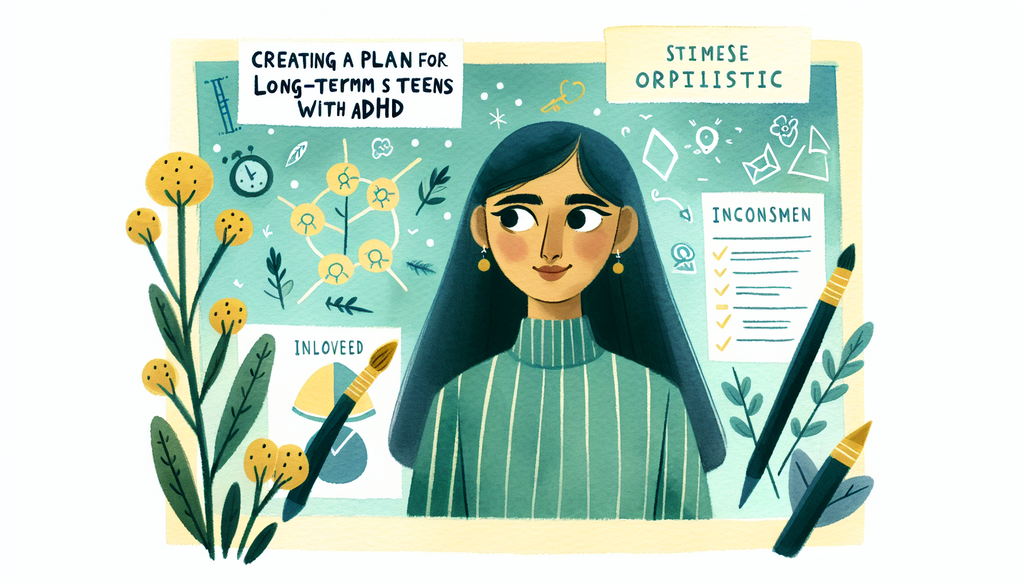Creating a Plan for Long-Term Success for Teens with ADHD

The teenage years are a crucial time for all young people, but for teens with ADHD, the transition into adulthood can be particularly challenging. However, with a structured plan and the right support, these teens can not only navigate these years successfully but also focus on long-term goals and success strategies.
Understanding the Needs of Teens with ADHD
There are several key aspects of ADHD that need to be considered when designing a plan for a teen with this diagnosis. Impulsivity, difficulty with attention, and hyperactivity can all interact with the normal challenges of adolescence, like increased school demands and developing independence.
However, ADHD also often comes with strengths - creativity, empathy, the ability to think outside the box, and a unique perspective on the world. These potentials can be nurtured, allowing the teen to bloom under the right guidance. Our previous posts have explored how to create targeted and achievable learning objectives for special needs students that cater to their individual goals and abilities.
Finding the Right Support
Just as with any other teenager, teens with ADHD need supportive adults in their lives. These might be parents, teachers, therapists, or mentors. Adults can help teens with ADHD to understand their diagnosis, work on strategies for dealing with difficulties, and focus on their strengths.
For parents especially, we have an entire series on navigating such challenges, including dealing with grief and loss, fostering social skills, and managing sensory overload during festive occasions.
The school environment also plays a key role. Collaboration between teachers and parents can facilitate a conducive learning environment. Teachers can utilize inclusion strategies in physical education, integrate technology to support dyslexic readers, and implement curriculum modifications for students with learning disabilities.
Moving Towards Long-Term Success
The goal is not just to support teens with ADHD through high school but also to prepare them for the future. With this in mind, it’s crucial to cultivate life skills that will serve them well in adulthood. We’ve noted the importance of integrating life skills into the special education curriculum in our other posts.
We also need to guide teens with ADHD on navigating and leveraging social media in a responsible, beneficial way. Consider reading our guide for parents on managing and mentoring their gifted teenagers’ use of social media as a starting point.
ADHD is a different journey for every teenager, but with understanding, the right support, and a focus on strength and strategy, it can be a journey towards success. Ultimately, these efforts can help teens with ADHD become resilient, adaptable young adults ready to step into their futures with confidence. Delve deeper into cultivating resilience in your teen with our guide on preparing for back-to-school transitions.